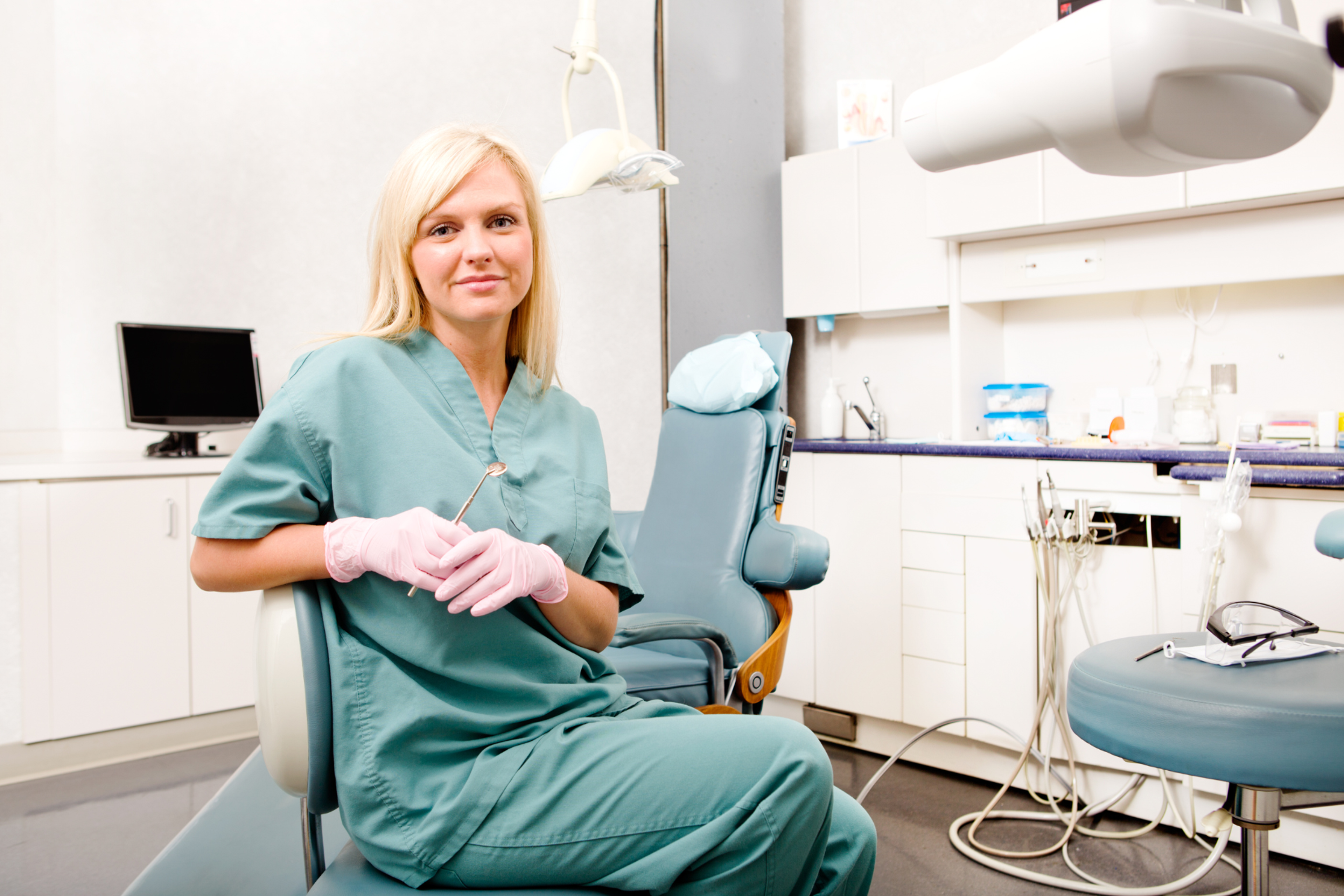Doctor of Dental Medicine (DMD) Degree – What It Is, Requirements, Salary, & How to Apply
Learn everything about the DMD degree—requirements, salary, application tips, and career paths. Start your journey to a successful dental career today through this guide.
Posted July 9, 2025

Join a free event
Learn from top coaches and industry experts in live, interactive sessions you can join for free.
Table of Contents
Thinking about becoming a dentist? If you're passionate about oral health and dream of a career that blends science, artistry, and helping others, earning a Doctor of Dental Medicine (DMD) degree might be your perfect path. But what exactly is a DMD degree? How does it compare to a Doctor of Dental Surgery (DDS)? What can you expect in terms of salary, education, and career opportunities?
Whether you're a pre-dental student or someone exploring the world of dentistry, this guide will walk you through everything you need to know about the DMD degree — from application requirements to potential earnings and career paths. Let's dive in and see what it really takes to become a successful dentist.
What Is a Doctor of Dental Medicine (DMD) Degree?
The Doctor of Dental Medicine (DMD) is a professional dental degree awarded to individuals who complete a comprehensive dental education program accredited by the American Dental Association (ADA). A DMD degree is equivalent to a Doctor of Dental Surgery (DDS) degree, as both follow the same curriculum requirements and qualify graduates to practice dentistry.
The primary difference between DDS and DMD lies in the name only. Both degrees require students to undergo extensive clinical training and classroom training to acquire essential clinical skills. Graduates must pass the National Board Dental Examination (NBDE) and meet state licensure requirements to become licensed dentists.
Requirements to Earn a DMD Degree
Earning a Doctor of Dental Medicine (DMD) degree involves a series of critical steps designed to ensure that aspiring dentists are well-prepared for the demands of dental medicine. From undergraduate studies to licensure, each stage plays an essential role in developing the skills and knowledge required for successful clinical practice.
Complete Undergraduate Education
Before applying to dental schools, you’ll need to complete a bachelor’s degree. Most programs expect coursework in areas such as biology, chemistry, physics, and organic chemistry. Popular undergraduate majors include biological sciences, health sciences, and biochemistry, though any major can work as long as you meet the prerequisite science courses.
Pass the Dental Admission Test (DAT)
The Dental Admission Test (DAT) is a standardized exam administered by the American Dental Association (ADA). It evaluates your skills in natural sciences, reading comprehension, perceptual ability, and quantitative reasoning. A high score on the DAT can significantly enhance your chances of admission to top dental schools.
Apply to Accredited Dental Schools
Applications to DMD programs are typically submitted through the American Dental Education Association’s (ADEA) Associated American Dental Schools Application Service (AADSAS). This centralized service allows you to apply to multiple schools with a single application. Preparing strong letters of recommendation, writing a compelling personal statement, and submitting accurate academic transcripts are all essential components of the application process.
Complete a DMD Program
Once admitted, you’ll embark on a four-year DMD program that combines classroom training, clinical training, and practical experience. Coursework typically covers a broad range of topics, including dental anatomy, oral pathology, oral health, oral sciences, dental materials, and clinical skills development. As you progress, clinical training will become increasingly important, providing hands-on experience in general dentistry and various dental specialties.
Pass the National Board Dental Examination (NBDE)
To graduate and become licensed, you must pass the National Board Dental Examination (NBDE), now known as the Integrated National Board Dental Examination (INBDE). This comprehensive test is divided into two parts:
- NBDE Part I focuses on foundational sciences such as anatomy, biochemistry, and physiology.
- NBDE Part II assesses your clinical knowledge and skills, including oral health, dental surgery, and patient care.
Obtain Licensure
After passing the NBDE, the final step is to obtain a state-specific dental license. This requires completing a clinical examination administered by a state or regional testing agency. Once licensed, dentists must maintain their credentials through continuing the same education to stay updated on the latest advancements and best practices in dental medicine.
Salary Expectations for DMD Graduates
The salary for dentists with a DMD degree varies depending on location, specialty, experience, and practice setting. According to the U.S. Bureau of Labor Statistics (BLS), the median annual salary for dentists is approximately $164,010 as of 2024.
Here’s a more detailed breakdown of different specializations and their average annual salaries:
| Specialization | Median Annual Salary | Description |
|---|---|---|
| General Dentists | $164,010 | Provide routine care, preventive treatments, diagnostics, and common procedures such as fillings, cleanings, and crowns. |
| Oral and Maxillofacial Surgeons | $242,370 | Specialize in surgical procedures involving the face, mouth, and jaw, including wisdom tooth removal and corrective surgery. |
| Orthodontists | $237,990 | Focus on diagnosing and treating misalignments of the teeth and jaw, primarily through braces, retainers, and aligners. |
| Prosthodontists | $231,280 | Specialize in restoring and replacing teeth, including dentures, bridges, crowns, and implants to enhance oral function and aesthetics. |
| Periodontists | $220,850 | Experts in preventing, diagnosing, and treating gum disease, as well as placing dental implants and performing soft tissue grafts. |
| Pediatric Dentists | $214,070 | Provide specialized dental care for children from infancy through adolescence, including preventive care and treatment of oral conditions. |
| Endodontists | $209,240 | Focus on treating issues related to the dental pulp and nerves, including root canal therapy and other endodontic surgeries. |
| Public Health Dentists | $150,230 | Work in community health settings, focusing on dental care for underserved populations and public health research. |
| Academic Dentists | $127,650 | Teach and conduct research at dental schools or universities. Salaries vary based on rank, institution, and funding. |
Additional Insights:
- Geographic Location - Dentists practicing in urban areas with a higher cost of living generally earn more than those in rural areas. States like California, New York, and Texas often offer higher salaries.
- Experience Level - Dentists with more years of experience, advanced skills, or established reputations typically earn more.
- Practice Setting - Owning a private practice generally provides the highest earning potential but comes with greater overhead and administrative responsibilities.
How to Apply to a DMD Program
Applying to a Doctor of Dental Medicine (DMD) program requires careful planning, preparation, and commitment. Demonstrating your academic readiness, clinical experience, and passion for dentistry is essential to secure a spot in a competitive program.
1. Prepare for the DAT
The Dental Admission Test (DAT) is a critical component of your application. This exam assesses your knowledge and skills in natural sciences, reading comprehension, perceptual ability, and quantitative reasoning. Most students prepare extensively for the DAT, often dedicating several months to study. It is advisable to take the DAT during your junior year of college, after completing relevant coursework in biology, chemistry, physics, and organic chemistry.
2. Submit Applications via ADEA AADSAS
After completing the DAT, the next step is submitting your applications through the American Dental Education Association’s Associated American Dental Schools Application Service (ADEA AADSAS). This centralized portal allows you to apply to multiple dental schools simultaneously. To complete your application, you will need to provide academic transcripts, DAT scores, letters of recommendation, and a personal statement that highlights your motivations, experiences, and career goals in dental medicine.
3. Complete Dental School Interviews
If your application is successful, you will receive invitations to participate in interviews. These interviews assess your communication skills, motivation, clinical skills, and overall suitability for the program. Research each school’s specific requirements and prepare to discuss your dedication to oral health, your experiences in clinical training, and your vision for your future dental practice. The interview process varies by school but is a significant factor in admission decisions.
Read: The Most Common Dental School Interview Questions–and How to Answer Them
4. Enroll in a DMD Program
Once accepted, you will enroll in a four-year DMD program. During this period, you will engage in a rigorous combination of classroom training and clinical training. Coursework covers essential topics such as dental anatomy, oral pathology, oral sciences, clinical skills, and patient care. Practical training, which increases in intensity over the course of the program, prepares you for clinical practice and various dental specialties.
5. Pass Licensing Exams
Completing a DMD program is only the beginning. To obtain a license to practice dentistry, you must pass the Integrated National Board Dental Examination (INBDE). This comprehensive exam evaluates both academic knowledge and clinical skills. In addition to passing the INBDE, you must pass a state or regional clinical examination to obtain licensure. Once licensed, you can practice dentistry independently, pursue specialization, or continue your education through residency programs.
Career Opportunities with a DMD Degree
After earning a DMD degree, graduates can pursue various career paths, including:
- Private Practice - Owning or working in a dental clinic to provide general or specialized care.
- Public Health Dentistry - Serving underserved communities through public health programs.
- Dental Specialties - Pursuing additional training in orthodontics, oral surgery, pediatric dentistry, and more.
- Academic Dentistry - Teaching and conducting research at dental schools like Harvard University.
- Hospital Dentistry - Working in clinical settings alongside other healthcare professionals.
The Bottom Line
A Doctor of Dental Medicine (DMD) degree opens the door to a rewarding and respected career in dentistry. Whether you’re passionate about patient care, public health, or dental innovation, the DMD path offers the training, skills, and opportunities to thrive in the field. From rigorous education and clinical training to licensing and career growth, becoming a dentist requires dedication, but the long-term impact is well worth it. If you're serious about pursuing dentistry, take your first step with confidence, preparation, and a clear understanding of what lies ahead.
How Top Dental School Coaches Can Help You Succeed
Earning a DMD degree is challenging, but top dental school coaches can streamline your path to success. They provide expert guidance for DAT preparation, application strategies, interview coaching, and residency planning. Coaches offer personalized study plans, mock interviews, and tailored feedback to help you excel at every stage, from applying to dental school to securing advanced residency programs.
Their industry knowledge and networking opportunities can give you a competitive edge, ensuring you stand out among applicants. Whether you're pursuing general dentistry, academic roles, or specialized fields, working with a dental school coach can be your key to achieving a successful and impactful career.
Read next:
- Doctor of Dental Surgery (DDS) Degree – What It Is & How to Apply
- DMD vs. DDS: What's the Difference and Which is Better?
- How Hard Is It (Actually) to Become a Dentist?
- Best Majors for Dental School: A Guide for Pre-Dental Students
- How to Become a Dentist: Application, Degree Programs, FAQs
- The Top 25 Dental Schools – and How to Get In
FAQs
Is a bachelor's degree required for admission into a DMD program?
- While some dental schools require applicants to have completed a bachelor's degree, others may accept candidates with a minimum of 90 semester credits, provided they have completed the necessary prerequisite courses.
What is the difference between a DMD and a DDS degree?
- There is no difference between the Doctor of Dental Medicine (DMD) and Doctor of Dental Surgery (DDS) degrees; both signify the same level of education and qualification. The distinction lies in the title preference of the awarding institution.
Are international students eligible to apply for DMD programs?
- Eligibility for international students varies by institution. Some dental schools accept applications from international candidates, while others may have restrictions. It's essential to check the specific requirements of each school.
Can prerequisite courses be taken online?
- Some dental schools highly recommend that prerequisite courses be completed in a traditional classroom setting rather than online.
Is there a limit on the number of times I can take the Dental Admission Test (DAT)?
- The American Dental Association allows candidates to take the DAT up to three times. Applicants who have had three or more attempts can apply for permission to test again, with subsequent retests limited to once per 12-month period.
Do dental schools accept Canadian DAT scores?
- Acceptance of Canadian DAT scores varies by institution. Some dental schools accept the Canadian DAT, while others prefer or require the U.S. DAT.
What extracurricular activities can strengthen my DMD application?
- Engaging in extracurricular activities such as community service, leadership roles, research experience, and dental-related volunteer work can enhance your application by demonstrating a well-rounded character and a commitment to the field.

























